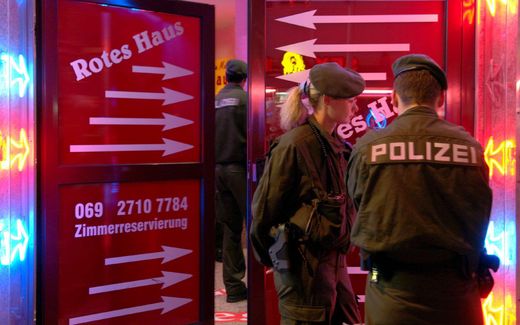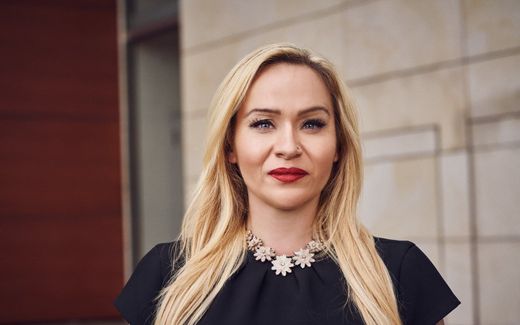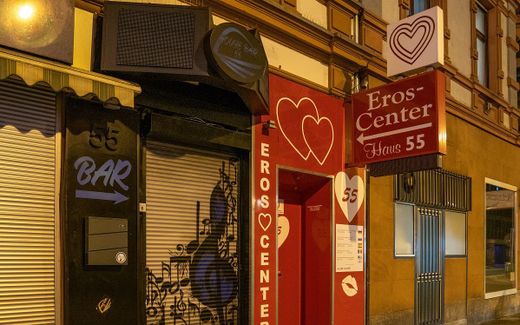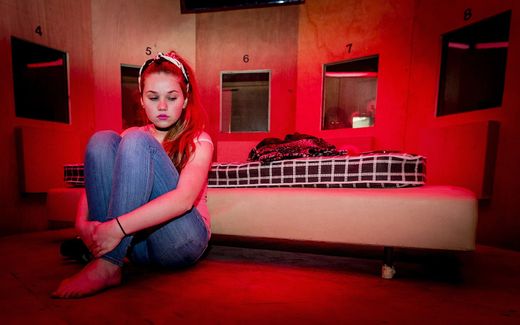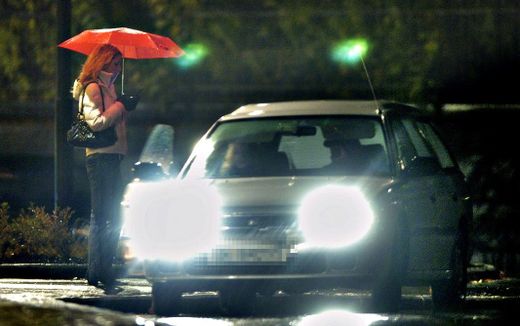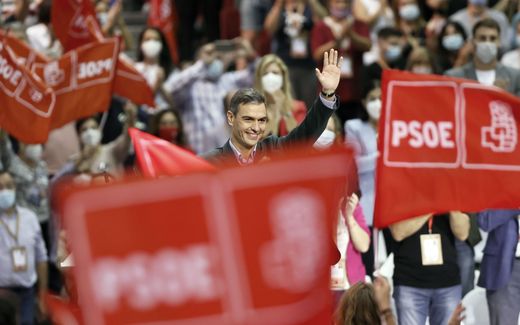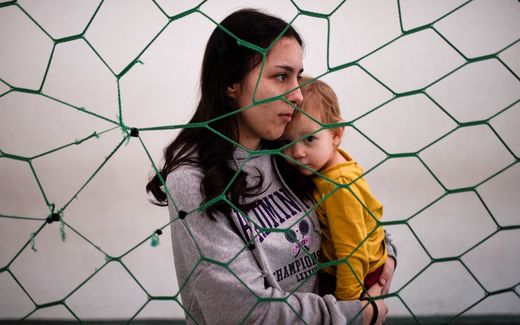Social worker in Germany: Local church can help to step out of prostitution
07-09-2023
Central Europe
Swanhild Brenneke, PRO
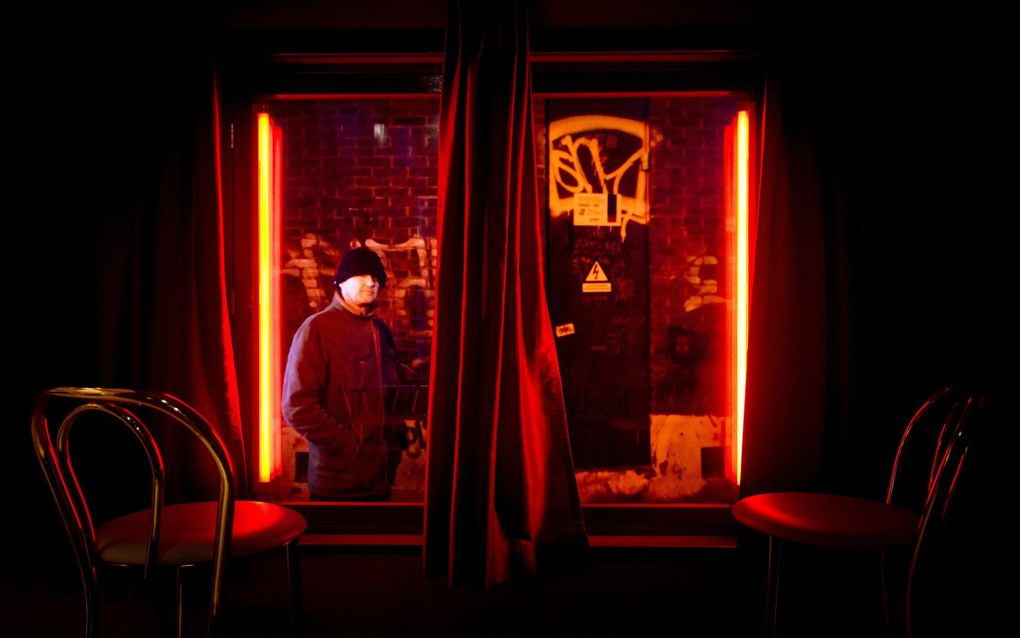
A man looking through the window of a prostitute. Photo ANP, Koen van Weel
Central Europe
You are loved and precious people, Julia Obergfell tells the prostitutes she meets. As part of the organisation Herzwork, she helps sex workers to find another job.
The association "Herzwerk" (Heart Work) helps former prostitutes in a project to find a safe job away from the red light scenes. Julia Obergfell from "Herzwerk" finds it particularly important that Christian employers also get involved.
What is the EVI project about?
Julia Obergfell: "Our project is aimed at victims of gender-specific violence in prostitution, who we accompany in their job search after successfully leaving prostitution. "EVI" stands for "Empowerment through vocational integration", i.e., strengthening victims through a new professional start in a safe working environment beyond the milieu.
Many of our clients have to overcome various hurdles: Many suffer from the consequences of the violence they have experienced, which can manifest itself in health problems, sleep disorders, panic attacks, flashbacks, social fears, debts and fear of unfamiliar surroundings, among other things. In addition, most people in prostitution are migrants, who first have to clarify their residence status and legal issues. Our project aims to lower these hurdles and overcome them together with a network of employers."
How has EVI been received? What are your experiences?
"At the heart of "EVI" is the idea of preparing those affected in the best possible way for a new entry into the labour market and, at the same time, building up a secure network of job opportunities with employers. So far, our experience has been positive: the clients appreciate our counselling and support enormously. Many are initially overwhelmed by the traditional routes via the job centre and independent applications. Here, we build an additional bridge to employers who are willing to go the "extra mile" with us.
The companies and organisations we have approached so far are very understanding and helpful. Of course, you always have to see what is possible in each individual case. Many clients start with a low-threshold part-time job in the hotel industry or cleaning. If they have a higher education and sufficient knowledge of German, training is also possible. At the same time, we see to it that the clients can develop their language and personal skills.
The most important thing for us is that they feel safe every step of the way and make decisions themselves. Many of those affected have survived incredible things and have a strong resilience. At the same time, they appreciate our accompaniment on their new path."
Who runs the project, and who initiated it?
"Five associations from Germany and Austria are behind the project: "Gemeinsam gegen Menschenhandel" (Together against human trafficking) (Berlin), "The Justice Project" (Karlsruhe), "Parakaleo" (Nuremberg) as well as "Hope for the Future" (Vienna) and "Herzwerk" (Vienna). We have all been working for many years with those affected and those who have dropped out. One of our core concerns is to accompany them in their professional reorientation. To this end, we regularly exchange information with each other and with other associations in the German-speaking countries in order to provide the best possible counselling and support for those affected."
Since when and for how long does the project run?
"Our EU-funded project has been running since the beginning of 2022 and will end this year in autumn with our final conference on 21 September in Nuremberg."
You want to sensitise Christian employers and congregations to the project. Why do you think it is important for Christians, in particular, to get involved?
"We see a wonderful opportunity in working with congregations and Christian employers: many of them feel connected to diaconal service in their communities, and with "EVI," this feeling can become lived practice. Our dream is that "EVI" networks will emerge in many cities. Employers can open doors to job opportunities, and congregations can provide a safe space where positive relational experiences can happen. To see this grow in German-speaking countries would be a piece of heaven on earth."
How can church congregations help concretely?
"The best way to do this is to work directly with local associations and groups that work with those affected – to then look together at what best serves the target group. The two greatest needs are usually affordable housing and a secure job. But even if a congregation cannot help directly, there are other possibilities: Support in the form of regular prayer times, fundraising, or even volunteering –whether locally or remotely– is a huge blessing. The best thing is to simply keep an eye out to see if there is a need in your own place and keep your eyes, ears and hearts open."
*** The "EVI" website also mentions training for employers who hire women exiting prostitution. What are the challenges for employers?***
"Since the "EVI" project focuses on former victims of violence, trauma-sensitive handling in the workplace is a major concern for us. "Trauma-sensitive" means that supervisors and teams have certain knowledge and skills that they can use in their everyday work with victims. This may sound more complicated than it is: Often, it is already helpful if, for example, external security is ensured, a friendly tone of voice and the "assumption of good reason", which means that there is a good reason for any behaviour – even if the behaviour of the other person seems strange to me at first.
In our training of employers, we follow the motto "as much as necessary and as little as possible" – neither do employers want hours of training nor do clients want anything from their past to be revealed. Confidentiality and personal protection have the highest priority for us. We only actively engage with employers if clients explicitly wish to do so and cannot or do not want to go through the application process alone."
What exactly does your association Herzwerk do?
"Similar to our partner associations in Nuremberg and Karlsruhe, our focus is on outreach work in the milieu as well as counselling and support for people in prostitution and those affected by human trafficking for sexual exploitation. Vienna has over 350 registered prostitution sites and two street bars. Here, our teams go out several times a week and make our services known.
Our counselling centre usually deals with issues such as papers, residence permits, registration, finances, health problems or worries about finding accommodation and, above all, jobs. Many women have children in their home country or here in Vienna. Most of them come from Romania, Hungary, Bulgaria, China and Nigeria. Our team also offers them everyday assistance to authorities or doctors – or simply meets for a coffee to chat. Many clients appreciate our very relationship-oriented approach. Our focus is on long-term exit support, which often lasts for months or even years.
Therefore, it is also our concern to invest ourselves politically as well as in educational work. For this purpose, we also work together with other associations and organisations in Vienna. We are particularly happy about our partner association, "Hope for the Future": Here, clients can attend German and sewing courses and thus improve their language skills as well as team and work skills. This is often a very important experience and time for them to gain a foothold in the labour market later on."
How many women do you generally advise or accompany as an association?
"Since the accompaniment processes often last for months or even years, we have abandoned the idea of considering case numbers as important. Each of our counsellors and companions is responsible for herself and counsels and accompanies as many people as her hourly quota and her own resources allow. We currently have a total of four women working in social counselling and five colleagues in everyday support. Most of them also regularly go out into the milieu – this is how new contacts are always made. We also have colleagues for administrative and prevention work and wonderful volunteers who support us in various areas."
What do you want to convey to the women who come to you?
"Above all, that they are loved, precious people. As Herzwerk, we have a holistic approach. This means that we see all people as masterpieces willed and loved by God, and in our counselling and support, we pay attention to all levels of human existence – body, soul and spirit. What the individual counselling sessions and processes are about is decided by the respective client herself, and this always looks different.
We are often fascinated by the creative abilities and survival strategies that individuals possess. When we celebrate special milestones with clients –such as the approval of papers or passing a German exam– these are our personal highlights. Again and again, we are able to experience this: What was broken by relationships can also heal again through relationships."
Has the Ukraine war changed anything in your work? Are there more Ukrainian women among the prostitutes?
"In Vienna, we meet a few women from Ukraine in the milieu. But in the border areas to the Czech Republic and Slovakia, there are many more. Many women who try to earn some money in prostitution there, prefer to stay close to home. The fates are terrible – unfortunately, that is the case with the vast majority of people in prostitution.
Poverty, war, hopelessness, coercion, and violence are the most common reasons why people are in prostitution. For those affected from Ukraine, fast and unbureaucratic help has been set up in many places, and rightly so – it is precisely this kind of help that all our clients need. As long as people in prostitution experience exploitation and violence, there is a need for outreach work, contact points and "EVI" networks so that those affected receive hope, perspective and support on a new path!"
This article was translated by CNE.news and published earlier by PRO on September 2, 2023
Related Articles

